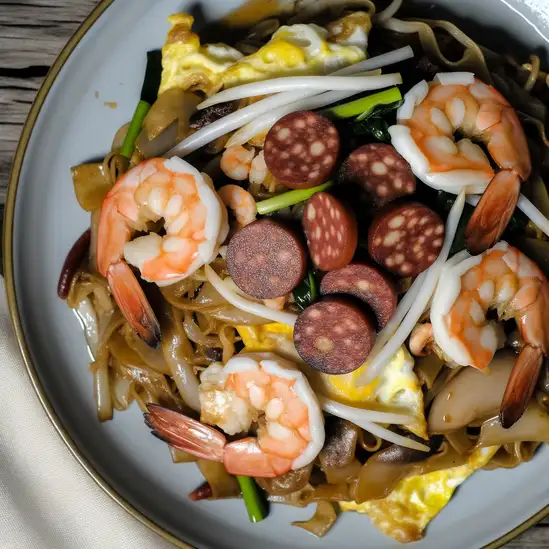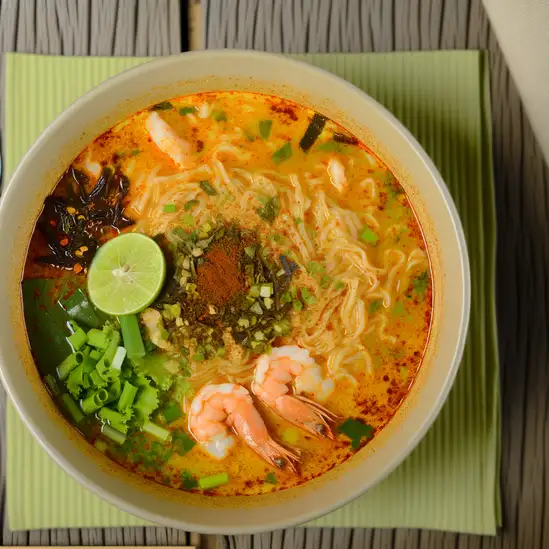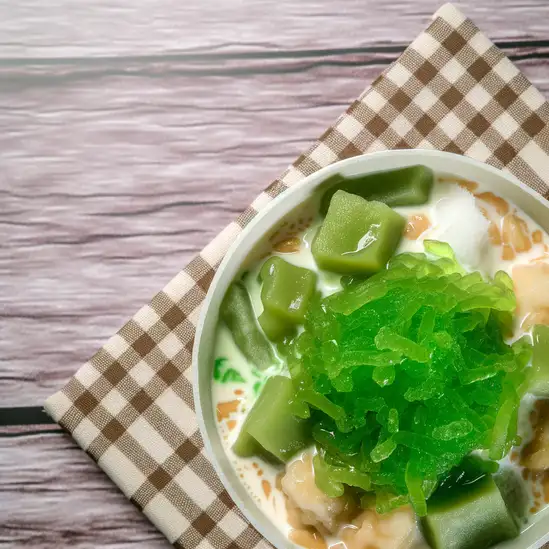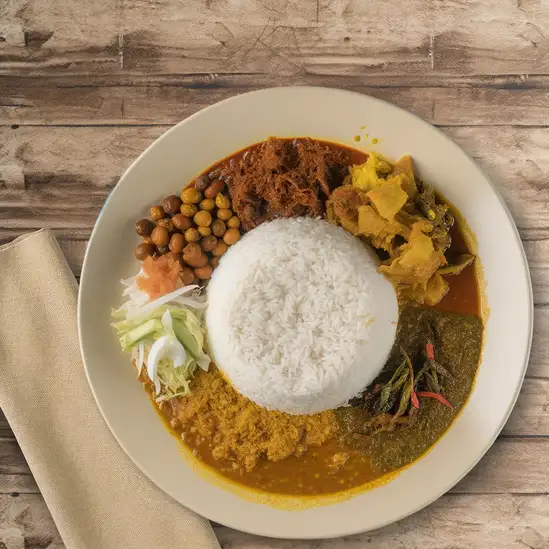


Imagine stepping into a place where the past and present dance effortlessly together—that’s Penang Island for you. The moment you arrive,there’s this warm,inviting buzz in the air,a mix of bustling street markets,the chatter of locals,and the distant hum of the sea. George Town,the island’s heart,feels like an open-air museum sprinkled with vibrant street art,colonial buildings,and temples that tell stories of centuries gone by. Walking through its narrow lanes,you’ll catch the scent of spices,fresh herbs,and sizzling street food that’s impossible to resist. Penang’s food scene is legendary,and it’s not just about eating—it’s a full-on sensory adventure. Picture biting into a char kway teow,the smoky wok hei flavor hitting your taste buds,or savoring a bowl of asam laksa,where tangy tamarind broth mingles with fresh fish and mint. Every meal feels like a celebration of the island’s rich multicultural heritage,blending Malay,Chinese,Indian,and even Nyonya influences. Beyond the city,the island’s lush hills and palm-fringed beaches offer a peaceful contrast to the lively streets. You can hike up Penang Hill for panoramic views or unwind by the shore,feeling the gentle sea breeze. What really stays with you,though,is the genuine warmth of the people—friendly smiles,curious conversations,and a laid-back vibe that makes you want to linger just a little longer. Penang isn’t just a place to visit; it’s a place that invites you to slow down,savor life,and soak in its colorful,flavorful soul.
The information on this page is currently being reviewed by Tripkliq and should be used as a guide only
Eng word: Hello
Eng pronunciation: Ha-lo
Local language: Halo
Eng word: Goodbye
Eng pronunciation: Se-la-mat ting-gal
Local language: Selamat tinggal
Eng word: Thank you
Eng pronunciation: Te-ri-ma ka-sih
Local language: Terima kasih
Eng word: How much
Eng pronunciation: Be-ra-pa
Local language: Berapa
Eng word: Toilet
Eng pronunciation: Tan-das
Local language: Tandas
Eng word: Help me
Eng pronunciation: To-long sa-ya
Local language: Tolong saya
Eng word: Yes
Eng pronunciation: Ya
Local language: Ya
Eng word: No
Eng pronunciation: Ti-dak
Local language: Tidak
Eng word: Excuse me
Eng pronunciation: Ma-af
Local language: Maaf
George Town, the capital city of Penang Island, was founded by Captain Francis Light of the British East India Company in 1786. It was named after King George III and became one of the first British settlements in Southeast Asia.
In 2008, George Town was designated as a UNESCO World Heritage Site, recognizing its unique architectural and cultural townscape without parallel anywhere in East and Southeast Asia.
Also known as the Blue Mansion, this iconic building was constructed in the 1880s by Cheong Fatt Tze, a wealthy Chinese merchant. It showcases a blend of Eastern and Western design elements and is a popular tourist attraction.
The Penang Hill Railway, opened in 1923, is one of the oldest funicular systems in the world. It offers a scenic ride to the top of Penang Hill, providing panoramic views of the island and the mainland.
Kek Lok Si Temple, located in Air Itam, is one of the largest and most important Buddhist temples in Southeast Asia. It was built over a period of 40 years, starting in 1890, and features a stunning seven-story pagoda.
The Clan Jetties are a collection of waterfront settlements established by Chinese immigrants in the 19th century. Each jetty is named after a Chinese clan, and they offer a glimpse into the traditional way of life of the early settlers.
Fort Cornwallis, built in the late 18th century, is the largest standing fort in Malaysia. It was constructed by the British East India Company to protect the island from potential naval attacks and remains a significant historical landmark.
Penang's street art scene began to flourish in 2012 with the commissioning of murals by Lithuanian artist Ernest Zacharevic. These artworks have since become iconic attractions, adding a vibrant and artistic touch to the city's heritage streets.
The Pinang Peranakan Mansion is a museum dedicated to the Peranakan culture, showcasing the opulent lifestyle of the Straits Chinese. The mansion, built in the 19th century, features intricate architecture and a vast collection of antiques.
In Penang Island, the most common Power Adaptor is Type G.


A popular stir-fried noodle dish made with flat rice noodles, prawns, cockles, eggs, bean sprouts, and Chinese sausage, all cooked in a flavorful soy sauce.

A spicy noodle soup dish with a coconut milk base, topped with prawns, chicken, tofu puffs, and a variety of herbs and spices.

A popular dessert made with shaved ice, green rice flour jelly, coconut milk, and palm sugar syrup, creating a sweet and creamy treat perfect for hot days.

A Malaysian dish of steamed rice served with a variety of curries and side dishes, typically eaten with your hands for a flavorful and messy experience.

A traditional fruit and vegetable salad dish with a sweet and spicy peanut sauce dressing, creating a unique and refreshing flavor combination.
Unlicensed money changers may offer poor exchange rates or give counterfeit currency.
Scammers may pose as representatives of charities and solicit donations from tourists for non-existent causes.
Individuals posing as official tour guides may offer their services and charge high fees for subpar or fake tours.
Tourists may book accommodations through fake websites or agents, only to find out that their reservations are not valid.
Crowded tourist areas can be hotspots for pickpockets who target unsuspecting tourists.
Vendors may sell counterfeit goods or overcharge tourists for items like souvenirs and local crafts.
Some taxi drivers may not use the meter and charge tourists exorbitant rates for short distances.
Tourists may be lured into attending presentations with promises of free gifts, only to be pressured into buying expensive timeshare packages.
Malaysia has very strict drug laws, and Penang Island is no exception. The possession, use, or trafficking of illegal drugs can result in severe penalties, including long prison sentences, heavy fines, and even the death penalty for certain offenses. Tourists should avoid any involvement with illegal drugs and be aware that even small quantities can lead to serious legal consequences.
In Penang Island, Malaysia, smoking is prohibited in many public places, including air-conditioned restaurants, public transportation, government buildings, and certain outdoor areas such as parks and playgrounds. There are designated smoking areas where smoking is allowed. Violators can face fines, so it is important for tourists to look for 'No Smoking' signs and adhere to local regulations.
Vaping is subject to similar regulations as smoking in Penang Island. It is banned in most public places, including indoor areas and certain outdoor locations. Tourists should be cautious and look for designated vaping areas. The penalties for vaping in prohibited areas can be similar to those for smoking.
What are other people saying about Penang Island?
Recent Social posts about Penang Island
There is nothing to show you for now.